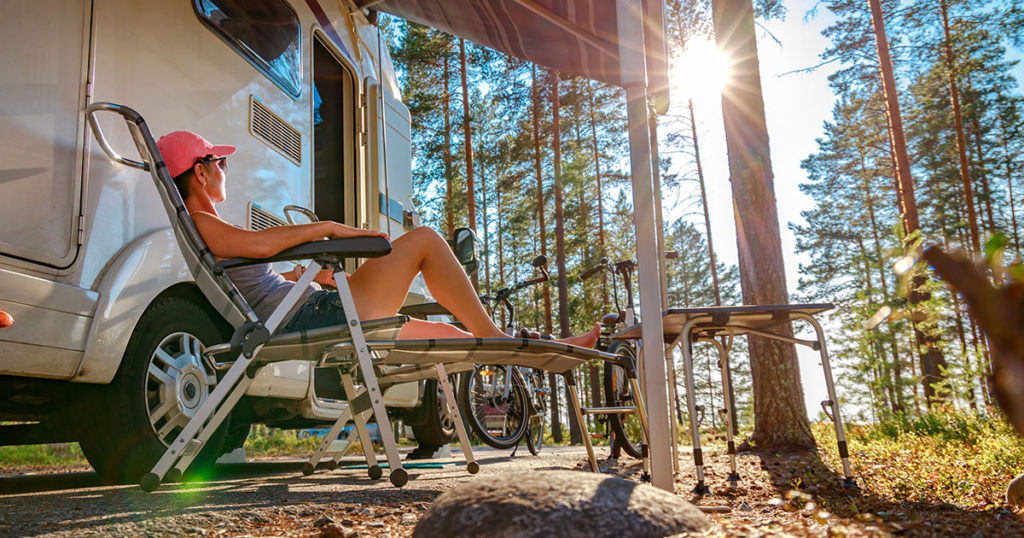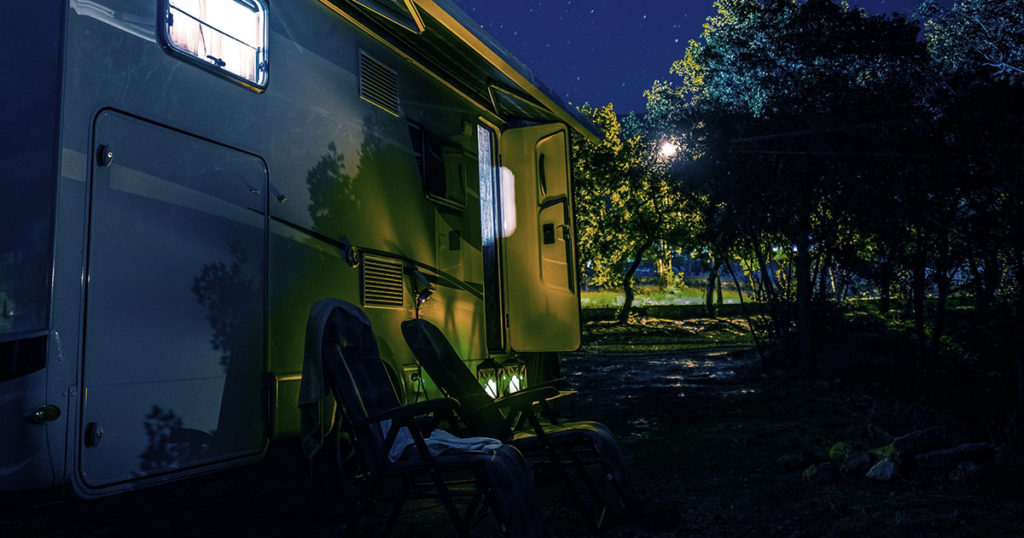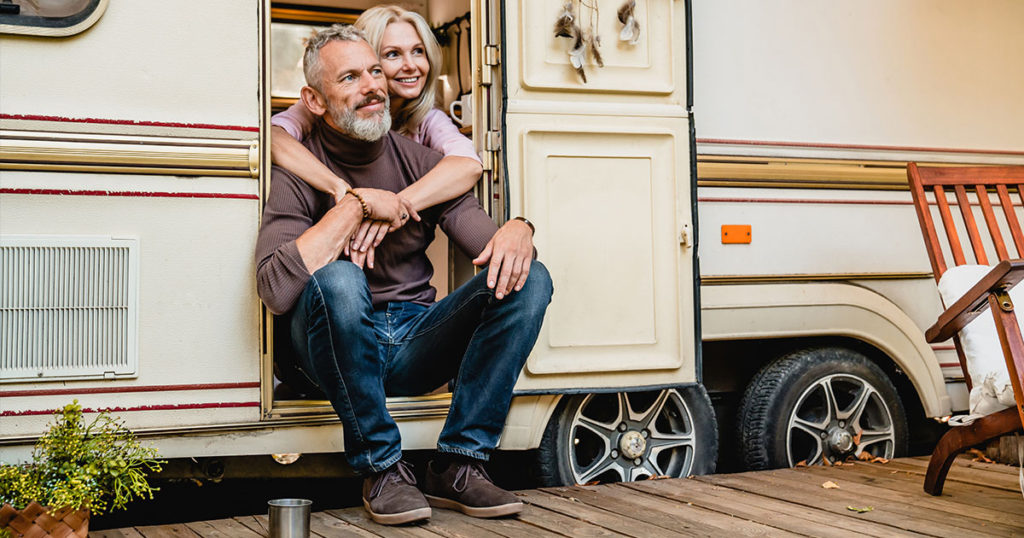6 Questions Before You Buy an RV
Do you find yourself excited about summer vacation this year but still holding out on airplane flights and hotels? If so, you’re not alone. Now more than ever, there’s a growing call to hit the open road and see America from behind the wheel. National parks, beaches, and scenic drives are literally on your doorstep when you travel in a recreational vehicle.
But like a lot of big-ticket DIY items, RV sales in America are seeing record highs in 2021, and retailers are expecting a 25 percent jump in deliveries over pre-pandemic levels in what some are calling the ‘best year in the history of the RV industry.
Empeople is here to help. Whether you’re considering a simple trailer or a fully furnished motorhome, these six questions will help focus your mind, narrow your choices and help finance your front door view of the great outdoors.

1. How Do You Plan To Use Your RV?
This isn’t the question you think it is. This question is not ‘where are you going in your RV?’. This question is ‘what is your RV for?’
Think of it this way: You’ve been saving money, scrolling the internet, and finding inspiration for some time, but there’s still a bit of uncertainty.
On the one hand, the #VanLife looks so carefree and appealing. You could pack it all up and live on the road year-round, chasing warm weather and incredible sunsets.
On the other hand, there’s barely enough room in a tiny camper for grown adults to shower, charge their phones, and nap. A bigger recreational vehicle gives room for more people and more storage.
The best RV for visiting national parks isn’t the same as what works for weekend trips. So think long and hard about just what this RV will do for you before you make your purchase.
2. How Much Money Can You Spend?
Cheaper than hotels, right? Buy an RV and save on accommodations and flights, and the purchase practically pays for itself, right?
Well, not exactly.
Campground fees across America run anywhere from $25 to $80 per night, and off-season storage can cost between $30 to $450 a month.
Add that to a fuel tank that holds 25 to 150 gallons, but a fuel efficiency that only averages 6 to 10 mpg, plus insurance, maintenance, and repairs, and all of a sudden, the ‘cheaper than hotels’ argument begins to look a bit wobbly.
So then, how much money can you really spend?
If you already own a truck or SUV, pop-up trailers or truck campers start around $6,000 for an RV you haul yourself. Travel trailers, the kind that attaches to a towing pintle on the rear bumper, run the gamut from $6,000 to $55,000.
The larger and more maneuverable fifth-wheel trailers range from $18,000 to $160,000 and in many cases, offer amenities as comfortable as an entire motor home with the convenience of a detachable vehicle.
Meanwhile, the cost of a new Type A motorhome, with slide-out expanders, full toilet and shower facilities and plenty of space to nap, as well as that 150-gallon fuel tank, can range between $100,000 and $500,000, depending on make and manufacturer, according to data from the RV Industry Association.

3. Who Needs A Bed?
Did you tell ALL your cousins they could come with you to Glacier National Park this summer?
Well, if you don’t have an available seat and bed for every permanent member of your extended family when you cross the Montana border, then where will everybody sleep?
Sure, they can all pitch tents at the campground under the stars, but what about storage for their stuff? What about the size of the hot water tank when it comes time to shower? And just how much food does the RV’s mini-fridge hold?
To answer this question, imagine what your ideal RV vacation looks like and then list who is coming with you. Is it you alone? You and a partner? The whole family? A basketball team and all the subs?
RVs come in a wide variety of sizes, amenities, and comforts that help make living on the road easier for travelers. You can help yourself decide which ones are right for you by making a checklist of needs based on how many people you expect on your next trip.
Extra Tip: RV campgrounds often advertise and offer a complete electric hook up, but your parking spot is sometimes far away from the shared outlet stanchion. Savvy travelers always pack a heavy 30-foot extension cord for RV campgrounds to run power back to the camper.
4. Where Will You Go?
This is the question about your travel plans. Now it’s time to think about the journey’s destination. These answers will help you choose which RV is best suited to your lifestyle.
Are you headed into a summer of warmer climates and beach weather? If so, will you need an air conditioner that runs when the vehicle is parked?
Or do you see your RV as a winter oasis that keeps your toes toasty when the weather outside is frightful? Can you rely on a campfire outside every night to warm your bones, or will you need a functional electric heater inside?
Do you plan to travel full-time? How much storage space do you need to live a full life with minimal space?
Or are you looking at purely part-time RV use? For example, can you winterize and store the vehicle on your property, or will you need a rental space under lock and key?
If you buy a Type A motorhome, will you need a second car to ferry supplies and sight-see from time to time? How much is your RV’s maximum trailer weight? What’s the RV’s curb weight?
What is the gross vehicle weight of your RV, fully loaded with cargo and passengers? What is the tongue load?
Extra Tip: Tongue load is how much weight a fully loaded trailer exerts downward on the hitch ball of the tow vehicle, and it’s typically around 10-15 percent of the gross trailer weight.

5. New or Used?
The average cost for a new RV is around $45,000, but high-end fifth wheels and trailers run as much as $75,000. Some customized vehicles can cost up to $1 million, and new motorhomes right now are what economists call a ‘seller’s market’ because of low inventory and high demand.
With limited supplies at dealerships, wiggle room for consumers to negotiate over the sticker price is severely constrained, both for new and used RVs. And make no mistake, there is a very sizable depreciation in resale value once a new RV is driven off the lot.
But if you’re willing to put in the internet search work to find one, a used RV can be a great way to get the features you want at a lower price.
Likewise, RV rental is another excellent way to save a hefty chunk of change from getting the vacation you want at a price you can afford, all the while testing out various options and models before committing.
In fact, some RV rental businesses exist solely to help ease RV buyers into the market, providing a wide variety of campers, trailers, and motorhomes for folks who are RV-curious and patient about the process.
6. Empeople Boat and Recreational Vehicle Loans
If you have $500,000 cash to spend on an RV, thank you very much for reading to the end of this blog.
But if you need a loan, see if you qualify before you begin shopping for a new or used vehicle with a pre-approved secured auto loan from Empeople (Empeople).
With our Best In Market Rates, you’ll save time and money whether your camper, trailer, fifth wheel, or motorhome comes from a dealership or a private seller. Call us at (800) 338-6739 or apply online with Digital Banking and see what payment opportunities await. Then get your motor running and get out on the highway.



